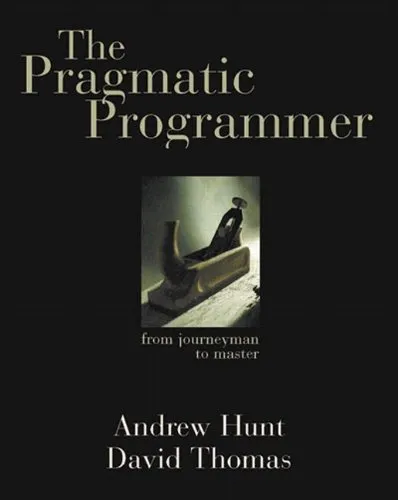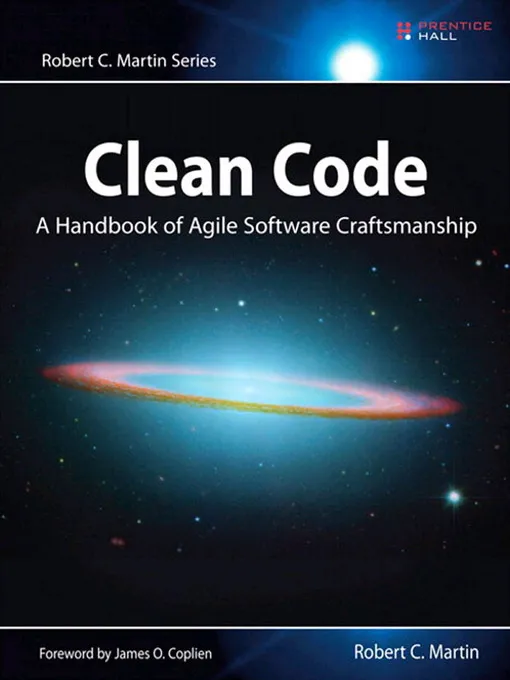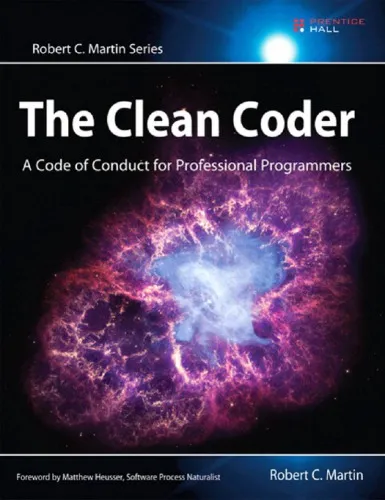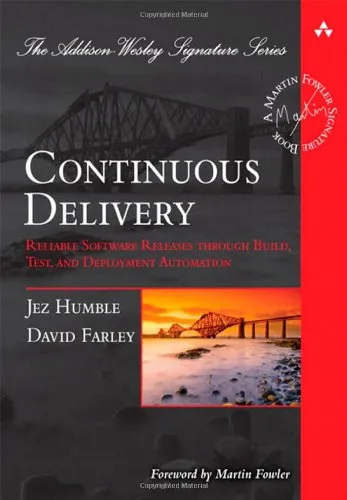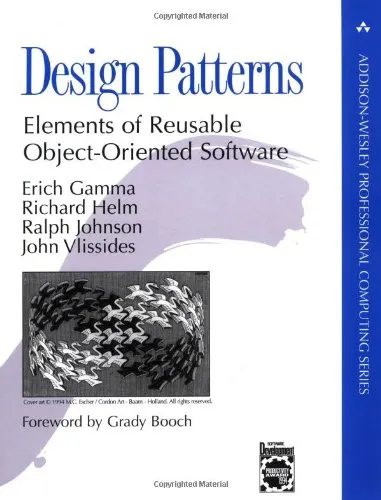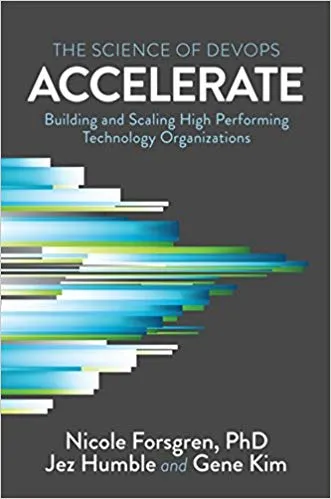The Pragmatic Programmer: From Journeyman to Master
4.3
Reviews from our users

You Can Ask your questions from this book's AI after Login
Each download or ask from book AI costs 2 points. To earn more free points, please visit the Points Guide Page and complete some valuable actions.کتاب های مرتبط:
Persian Summary
Introduction to 'The Pragmatic Programmer: From Journeyman to Master'
Welcome to an exploration into The Pragmatic Programmer: From Journeyman to Master, a seminal work by Andrew Hunt and David Thomas that transcends traditional software development guidance. This book has become an essential read for any programmer serious about honing their craft, offering a blend of practical advice and timeless wisdom.
Detailed Summary of the Book
The Pragmatic Programmer compels its readers to adopt a pragmatic approach towards software development. Originally published in 1999, the book has remained relevant in an ever-evolving industry. Its new edition continues to impart insightful lessons that cater to both novice and experienced developers.
The authors cover a wide array of topics including language choice, source control, code generation, testing, and debugging, while placing a strong emphasis on personal responsibility. Each chapter addresses different facets of programming with clear, concise language complemented by practical examples.
Key themes include the importance of maintaining a pragmatic mindset, the need for continual learning, and the value of writing clean, efficient code. The book guides programmers on a journey to becoming masters in their craft, encouraging them to think critically and adapt effectively to challenges in software development.
Key Takeaways
Readers of The Pragmatic Programmer are exposed to several pivotal takeaways:
- Embrace responsibility and think about your code's long-term impact.
- Prioritize learning new technologies while mastering fundamental skills.
- Think critically and challenge assumptions to reveal deeper understanding.
- Adopt effective practices such as version control, automated testing, and refactoring.
- Communicate clearly with team members to enhance collaborative efforts.
Famous Quotes from the Book
The book is filled with memorable quotes that capture the essence of a pragmatic philosophy:
"Your code is your responsibility. It's your job to make sure it works correctly."
"Don't live with broken windows. Fix problems as you discover them."
"Carefully document your assumptions. They are the foundation upon which every successful project rests."
Why This Book Matters
In the vast landscape of programming literature, The Pragmatic Programmer stands out as a timeless classic that resonates with software developers across different levels of expertise. Here's why this book is a must-read:
The pragmatic philosophy advocated by the authors instills a sense of ownership in developers, encouraging them to build high-quality software that is both functional and elegant. The book’s guidance on adopting a lifelong learning mindset is crucial in adapting to the rapid changes in technology.
Moreover, the book’s focus on efficient practices such as DRY (Don't Repeat Yourself), orthogonality, and automation promotes productivity and helps developers avoid common pitfalls in software development.
Ultimately, The Pragmatic Programmer is not just a technical manual, but a philosophy that nurtures better software professionals, equipping them to navigate and shape the future of the industry.
1673
بازدید4.3
امتیاز0
نظر98%
رضایتReviews:
4.3
Based on 0 users review
Questions & Answers
Ask questions about this book or help others by answering
No questions yet. Be the first to ask!
